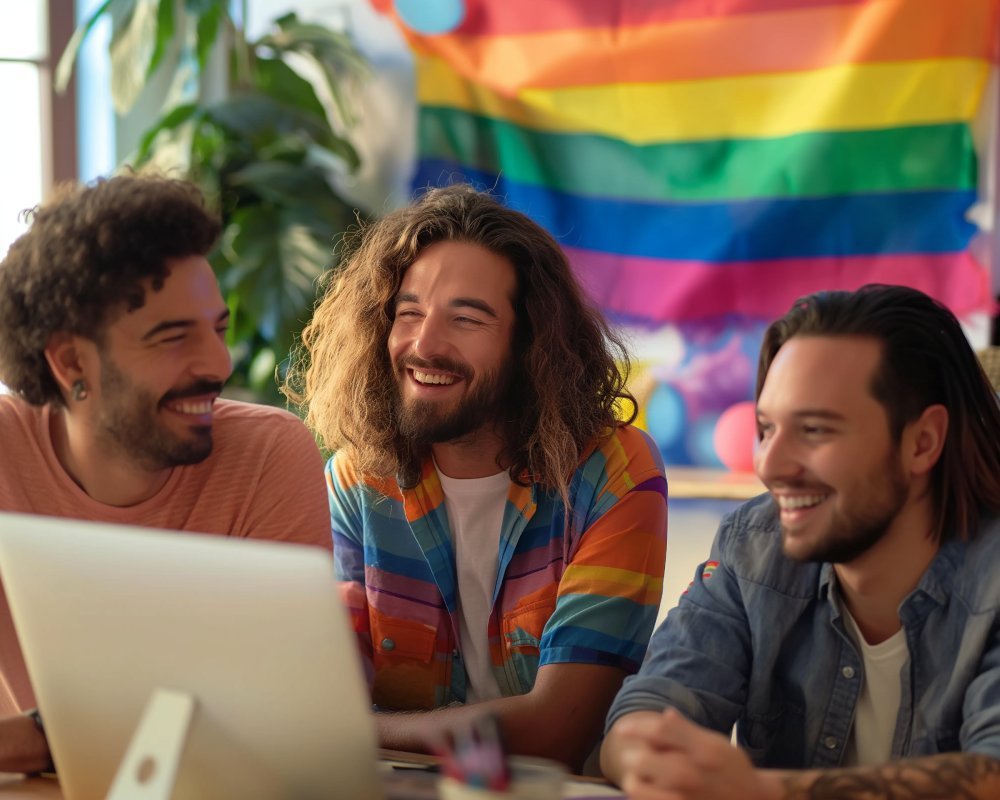
Why Are Gay Stereotypes Harmful? – Stereotypes have always been a prevalent issue in society, and the LGBTQ+ community is no exception. The harmful effects of gay stereotypes can be seen in various aspects of life, from relationships to career opportunities. Stereotypes are oversimplified ideas or beliefs about a particular group of people, often based on prejudice or misconceptions. When it comes to the LGBTQ+ community, stereotypes can be particularly damaging, as they can perpetuate harmful ideas and lead to discrimination and marginalization.
One of the main reasons why gay stereotypes are harmful is because they can limit an individual’s sense of self-expression and authenticity. When someone is constantly boxed into a narrow, predetermined idea of what it means to be gay, they may feel pressured to conform to that stereotype, even if it doesn’t align with their true identity. This can lead to feelings of shame, self-doubt, and internalized homophobia. Additionally, gay stereotypes can create unrealistic expectations about how LGBTQ+ individuals should behave, dress, or present themselves, which can further contribute to feelings of alienation and isolation.
Furthermore, gay stereotypes can also have a negative impact on relationships within the LGBTQ+ community. When people are pigeonholed into specific roles or categories based on their sexual orientation, it can create divisions and barriers between individuals. For example, the stereotype of the “flamboyant gay man” or the “butch lesbian” can cause people to make assumptions about others’ personalities, interests, or capabilities, without taking the time to get to know them as individuals. This can lead to misunderstandings, conflicts, and ultimately, prevent genuine connections from forming.
In addition to personal relationships, gay stereotypes can affect LGBTQ+ individuals in the workplace as well. When someone is perceived through the lens of a stereotype, they may be unfairly judged or discriminated against in professional settings. For example, the stereotype of the “effeminate gay man” as being weak or unassertive could lead to missed opportunities for leadership positions or promotions. Similarly, the stereotype of the “promiscuous bisexual” could lead to assumptions about someone’s professionalism or commitment to their work. These biases can create a hostile work environment and hinder LGBTQ+ individuals from reaching their full potential.
It’s important to recognize that gay stereotypes are not only harmful to individuals within the LGBTQ+ community, but they also have broader implications for society as a whole. When stereotypes are perpetuated and reinforced, it can lead to widespread discrimination, prejudice, and violence against LGBTQ+ individuals. By dehumanizing and objectifying people based on their sexual orientation, stereotypes can contribute to a culture of intolerance and bigotry, which can have devastating consequences for those who are targeted.
In order to combat the harmful effects of gay stereotypes, it’s essential for individuals to challenge their own biases and assumptions, and to educate themselves about the diverse experiences and identities within the LGBTQ+ community. By recognizing and celebrating the unique qualities and strengths of each individual, we can create a more inclusive and supportive environment for everyone. It’s also important for media, entertainment, and advertising industries to portray LGBTQ+ characters and narratives in a more nuanced and authentic way, to move beyond clichés and stereotypes.
Ultimately, it’s crucial for us as a society to work towards breaking down harmful stereotypes and promoting acceptance, understanding, and respect for all individuals, regardless of their sexual orientation or gender identity. By challenging prejudice and discrimination wherever we encounter it, we can create a more inclusive and equitable world for everyone. So, let’s ask ourselves, “Why Are Gay Stereotypes Harmful?” and commit to being part of the solution. Together, we can build a more just and compassionate society for all.
Advertisement · Scroll to continue

More Recommended
Stem Lesbian Meaning: What Is Stem Lesbian?
Stem Lesbian Meaning: What Is Stem Lesbian? – The term “Stem Lesbian” refers to lesbians [...]
Top Influencer Marketing for Gay-Owned Businesses
Top Influencer Marketing for Gay-Owned Businesses – In today’s ever-evolving digital world, influencer marketing has [...]
Elevating Your Brand with Lesbian-Focused Marketing Campaigns
The Power of Lesbian-Focused Marketing Campaigns in Elevating Your Brand Lesbian-focused marketing campaigns have the [...]
Why Advertisers Are Failing to Represent Lesbians?
Why Advertisers Are Failing to Represent Lesbians? The advertising industry has made strides in representing [...]
Who is the biggest benefactor of the DEI?
Who is the biggest benefactor of the DEI? – Diversity, Equity, and Inclusion (DEI) are [...]
How Can I Find a Gay Community Near Me?
How Can I Find a Gay Community Near Me? – In today’s digitally connected world, [...]
The Role of Gay Leaders in Politics
The Role of Gay Leaders in Politics – Leadership in politics is a powerful tool [...]
What Are the Best Gay Clubs Around the World?
What Are the Best Gay Clubs Around the World? – Are you a part of [...]
Best LGBTQ+ Motorcycle Tours & Rides
Best LGBTQ+ Motorcycle Tours & Rides – Embarking on a motorcycle tour is always thrilling, [...]